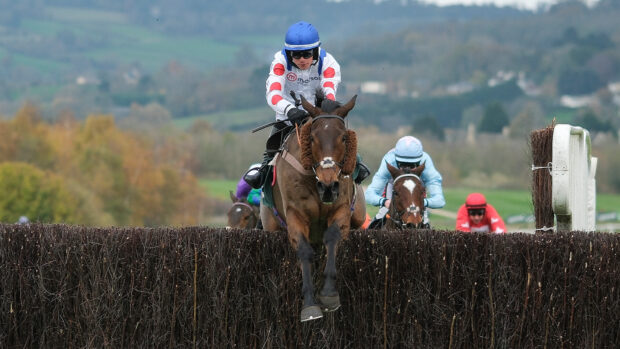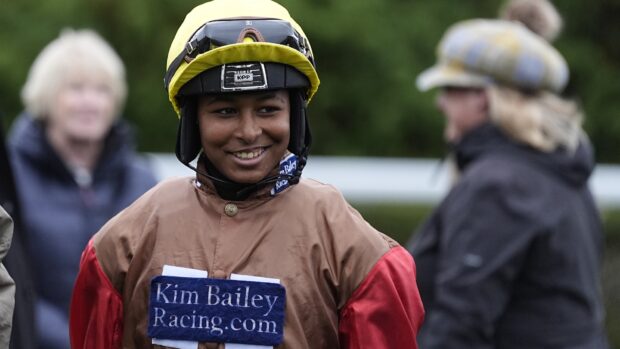THERE are fears changes to minimum weights in racing could harm jockeys’ mental and physical health, as discussions on the matter continue.
The British Horseracing Authority (BHA) announced a general weight increase of 2lb for most race categories at the start of the Flat and jumps season. This replaces the 3lb Covid allowance, brought in when racing resumed after the first lockdown to support jockeys when racecourse saunas were closed.
In a Professional Jockeys Association (PJA) survey last year, 88% of 190 respondents voted for saunas to remain closed. A 3lb allowance for safety equipment remains, as does a 1lb allowance for Flat jockeys during winter for warmer clothing.
Under the Covid allowance, a jockey weighing 9st 3lb could ride a horse allocated 9st. This means the horse would actually be carrying 9st 6lb, including the equipment allowance. But when the Flat season starts, a jockey weighing 9st 3lb would have to lose 1lb to ride the same horse, which would now be allocated 9st 2lb.
BHA chief medical advisor Jerry Hill said the closure of saunas was a “significant step forward” for jockey wellbeing and that a permanent raising of the minimum weight, while protecting competition by raising the maximum weight, was the “correct response”.
But the weight increase sparked backlash, with concerns it will make it even harder for jockeys to make the weight, and although many jockeys voted in favour of closing saunas, this was on the basis the Covid allowance would remain.
The BHA issued a response “in light of comments made”. It said the Covid allowance was a “temporary, emergency measure”, which had not been removed – it has been replaced by the 2lb increase “in all races other than pattern races and Flat amateur races”. The BHA added that the issue affected more than one part of the sport, so consultation took in views from “other sectors”. Concerns had been expressed by the National Trainers Federation (NTF) about the “potential impact” on some horses of routinely setting higher weights.
Flat jockey Ross Coakley raced in Ireland pre-Covid and moved to the UK in June 2021. He told H&H that before Covid, Irish racing had a similar rise, so he had “lived both lives”. He believes the decision was made with the “best intentions”, but he felt it would have a negative impact on jockeys’ mental health.
“When Covid happened, even though we were getting the allowance, no jockey suddenly saw this as an opportunity to say they could do lighter. Most maintained the weight they were, but they went through a stage where they didn’t have to sweat out three pounds on a daily basis – they could go to the races hydrated,” he said.
“The last thing you want is to be driving to a race worried about weight, thinking you can’t afford to have a drink [of water]. I think that’s why there was such a negative reaction from jockeys because we are going to be pushed back into that lifestyle, which we all lived until Covid, but we’ve realised the benefit of the current system and the improvement it’s brought to our daily lives.
Ross said the allowance is more beneficial and healthier for jockeys than the weight rise.
“There will always be the argument that no matter what they bring the weight up to, there will always be jockeys trying to do less. But if you give us the allowance at the scales, mentally jockeys will be more inclined to set their weight and use the allowance as their safety net, rather than having to take extreme measures,” he said, adding that a “big concern” is jockeys “flipping”, or making themselves vomit.
“Jockeys are always going to be working at their minimum [weight] – it’s their income. If you’re constantly in a position where you have to be two pounds lighter than when you wake up, you’re trying to function on very little food, sweating daily – there’s mental strain. I think that’s where the mentality of flipping comes in – if someone feels they can’t afford to eat but knows they have to, then they think I’ll just regurgitate it, and they’ve still had the pleasure from eating but not put on the weight. It’s a sick mindset, but unfortunately that was a big issue pre-Covid and that’s a position some people will be pushed back into.”
Jumps trainer Kim Bailey’s stable jockey David Bass also discussed the matter.
“This looks like the difference is only 1lb, but the weight going up 2lb in the racecard is irrelevant in a handicap,” said David. “Yes, the minimum weight in the racecard is 10st 2lb, but I could get asked to ride a horse with 10st 5lb in the card and I still have to get down 2lb below that. So if I am trying to get down to 10st 3lb, I will have to use short-term weight loss methods when with the current system I’m getting down to 10st 6lb – which is comfortable – without changing my routine.”
A spokesman for the NTF said the organisation was invited to take part in a consultation on the weight increase, and the need to provide full transparency of weight carried, to the public.
“We were of the view that the outcome reached was reasonable, although understand the sensitivity of this subject for jockeys,” he said. We are now engaged in further discussions with the BHA and PJA, which we hope will enable us to reach an outcome acceptable to all involved.”
As H&H went to press, the BHA told H&H that a “constructive” meeting was held with the PJA, NTF and a “handful” of jockeys on 2 February to discuss the matter.
“We are grateful to those who attended for giving their time and for their input. The discussions will continue and a further update will be provided,” said a BHA spokesman.
The PJA told H&H the organisation welcomed the opportunity to meet the BHA and NTF, and this included testimony from senior jockeys.
You might also be interested in:

Kim Bailey: ‘The stuff of legends’ – Paisley Park lit up Cheltenham on Festival Trials Day

‘More can and must be done’: working group to tackle poor conduct in British racing

Subscribe to Horse & Hound magazine today – and enjoy unlimited website access all year round
Horse & Hound magazine, out every Thursday, is packed with all the latest news and reports, as well as interviews, specials, nostalgia, vet and training advice. Find how you can enjoy the magazine delivered to your door every week, plus options to upgrade your subscription to access our online service that brings you breaking news and reports as well as other benefits.




